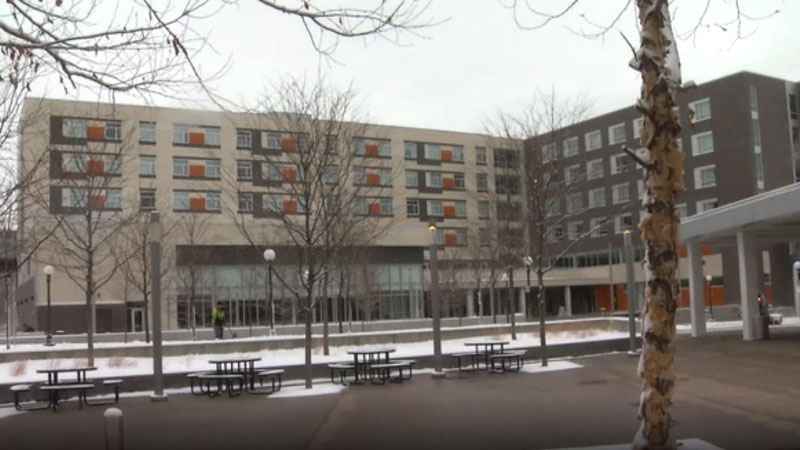Catholic Charities takes extra precautions to prevent spread of COVID-19 in shelters, other settings
[anvplayer video=”5005229″ station=”998122″]
As bitter cold temperatures continue, shelters are expanding to bring people inside.
Housing those experiencing homelessness while preventing the spread of COVID-19 has been a daunting challenge for shelter providers this year.
“Our operations have evolved significantly over the last year,” said Chris Michels, with Catholic Charities. “I think the fact that we’re standing here almost a year later with successful operations, having the ability to keep our doors open during a pandemic and really having a very low incident of having positive cases on our campus is something I’m really proud about.”
Michels is the director of housing stabilization and opportunity for Catholic Charites. She said they’ve been operating the Higher Ground St. Paul shelter at about half capacity during the pandemic. During the cold snap, they’ve expanded to 200 beds.
Each person who walks through the door is screened for symptoms by answering a list of questions. Depending on their answers, a temperature check could follow.

[KSTP]
“Just to get at how they’re feeling today,” Michels said. “We’ve found that to be really instrumental in removing individuals from this congregate setting who are unwell.”
They’ve also worked with the county to relocate people who need to quarantine and isolate.
Churches open as warming centers during dangerous cold snap
“We’re able to identify individuals who are just ill and we’re able to kind of remove them from that congregate shelter setting and send them to the respite center where they’re able to receive medical treatment and care and testing,” she said.
Michels believes some may be hesitant to enter a shelter setting right now due to COVID-19. The organization, however, reports only 114 positive cases among clients in site-based programs, which includes shelters, housing and drop-in centers.
The number of positive cases equals about one percent of the clients they serve in those programs.
According to Catholic Charities, they serve about 1,000 people per day at the Dorothy Day campus alone.
“This is a really dense campus with lots of people,” Michels said. “Ramsey County Public Health really stepped up and did diligent weekly testing through the holidays to ensure we were really able to stay on top of cases and we were finding positives on the campus in the onesies and twosies but didn’t really find anything beyond that.”
Precautions are in place throughout the campus. At the cafeteria, chairs are propped up to encourage social distancing during meal times.
Those staying at the shelter, or who are unsheltered, are served at the cafeteria. Meanwhile, individuals who are housed in an apartment on campus have meals and groceries delivered to their unit on a weekly basis.
Offices meant for organizations who provide mental health, employment, financial and other services are also currently empty.
“The building is about a year old and when it was built this was envisioned as a partner resource hub where we’d have county partners, other nonprofit partners providing other services,” Michels. “It was really meant to be a one stop shop and unfortunately because of COVID we’ve never had the opportunity to maximize those partnerships.”
Michels looks forward to vaccinating their clients, which is expected to start this week. They will determine prioritization from MDH and county guidelines.
She saidmany of the individuals they work with are struggling with the isolation of the pandemic.
“For the individuals that don’t have a permanent roof over their head and don’t have meaningful connections to essential medical services and services to treat their chemical health and their mental health, it’s just getting more and more profound for us on a daily basis that people are really struggling,” said Michels, whose team is also combatting fatigue. “I want people to understand that the individuals we serve on our campus and for those how are experiencing homelessness, they’re someone and they hold value and they are deserving of the best possible care and crisis response we can give to them.”